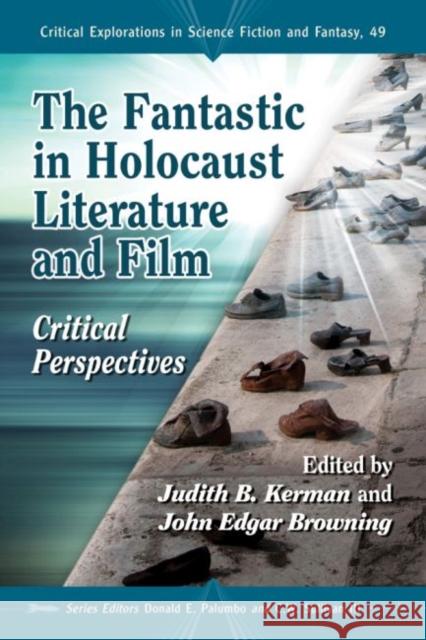The Fantastic in Holocaust Literature and Film: Critical Perspectives » książka
The Fantastic in Holocaust Literature and Film: Critical Perspectives
ISBN-13: 9780786458745 / Angielski / Miękka / 2014 / 244 str.
When the real is so fantastic, what literary effects will succeed in making it credible and help readers to comprehend its human meaning? As recent world developments fully show us, several lessons of the Nazi Holocaust still remain to be learned. To respond meaningfully and ethically to the Holocaust, writers need to incorporate moral and emotional complexity, and one way they have done this is through using the techniques of the fantastic. The authors in this anthology of essays examine the usefulness of fantastic story-telling for exploring relevant philosophical and moral issues about the Holocaust. The present volume is interdisciplinary in scope, including print literature and film, animation, graphic novels, and various other media. The editors have sought essays that, while ranging in theoretical perspectives, engage in dialogue with one another, together producing a comprehensive whole. Examined are writers like JaneYolen and Art Spiegelman and such works as the sci-fi television series V (1983), Stephen King's novella Apt Pupil (1982), Guillermo del Toro's imaginative Pan's Labyrinth (2006), and Martin Scorsese's dark thriller Shutter Island (2010).











